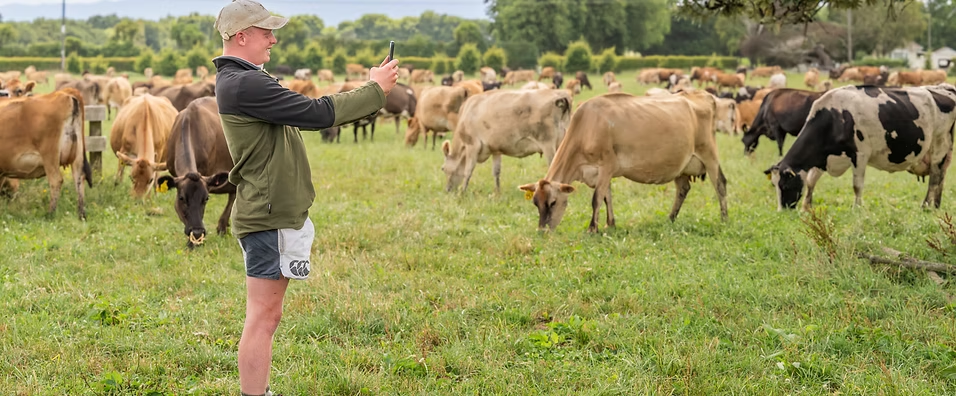Smart Farming
Nestlé enters aquaculture research partnerships in UK and New Zealand

Melissa Bradshaw
12 June 2025
12 June 2025
Nestlé enters aquaculture research partnerships in UK and New Zealand

Nestlé’s Institute of Agricultural Sciences has entered into research collaborations with partners in the UK and New Zealand, exploring the potential environmental benefits and scalability of innovative aquaculture approaches.
The F&B giant is aiming to improve the sustainability of global food systems through aquaculture research, with potential benefits in areas such as low-carbon food ingredients and algal bioplastics for packaging.
One approach being explored, known as integrated multi-trophic aquaculture, involves farming different aquatic species from various levels of the food chain together. This can enable the waste from one species to serve as food for another, a natural recycling process that can help maintain water quality. Species diversification can also improve biodiversity and income stability for farmers, Nestlé said.
In New Zealand, Nestlé is partnering with the country's largest science organisation, the Cawthron Institute, to study interactions between different species of seaweed and shellfish.
Supported by the institute’s marine science and aquaculture expertise as well as local PhD research, the initiative aims to improve scientists’ understanding of the best mix of species and ocean conditions to optimise productivity and environmental benefits.
Nestlé is also conducting research on offshore conditions at an existing aquaculture farm with start-up Algapelago in the UK. Located off the north coast of Devon, the farm features seaweed and mussels growing together.
Scientists use a combination of advanced monitoring technology and field data collection to evaluate biodiversity, water quality, environmental conditions and productivity. The partnership also benefits from the expertise of local marine scientists and PhD researchers at the University of Portsmouth.
Jeroen Dijkman, head of the Nestlé Institute of Agricultural Sciences, said: “This collaborative research will provide new, science-based insights on the contribution that integrated multi-trophic aquaculture can make towards sustainable food production while optimising marine ecosystem restoration and carbon sequestration”.
Nestlé said it is continuously exploring science-based innovations to help strengthen the sustainability of global food systems. The company signed a research agreement with the Pontificia Universidad Católica de Chile in 2023, focusing on the potential of marine plants and other alternative vegetable protein sources in Latin America.
Related news
Australia approves cell-based meat for sale in regulatory milestone for start-up Vow
Australian biotech company Vow has announced that cultivated Japanese quail products under its brand, Forged, have been officially approved for sale in Australia and New Zealand.
Aimer launches AI-driven pasture measurement tool to enhance dairy farming in New Zealand
Agritech start-up Aimer Farming has officially launched Aimer Vision, a pioneering AI-driven toolset designed to transform pasture...
New Zealand government invests NZD 9.6m in cultivated fish project
The New Zealand government has pledged NZD 9.6m towards a five-year project to develop and investigate cultivated seafood.
Smart Farming
Nestlé enters aquaculture research partnerships in UK and New Zealand

Melissa Bradshaw
12 June 2025



